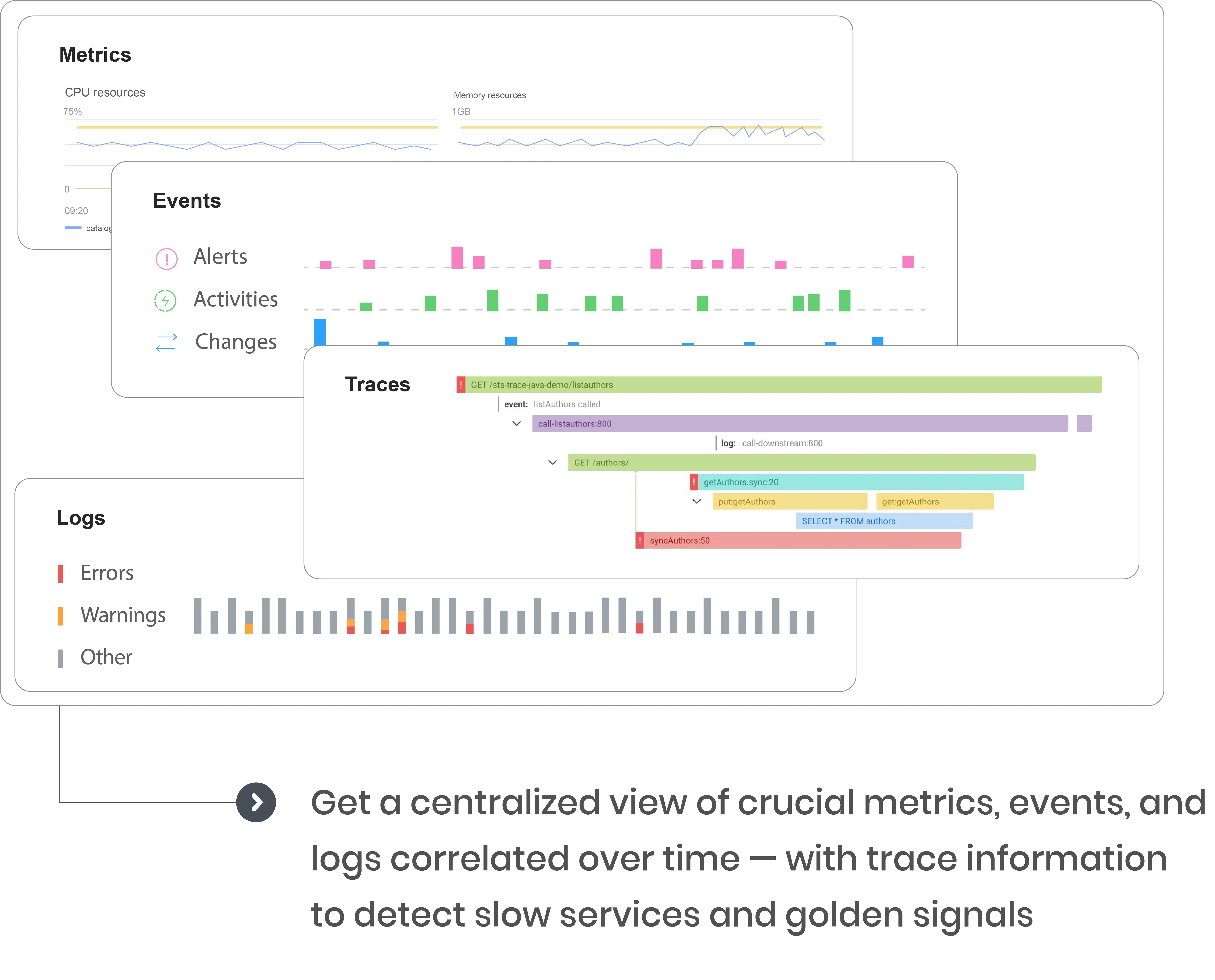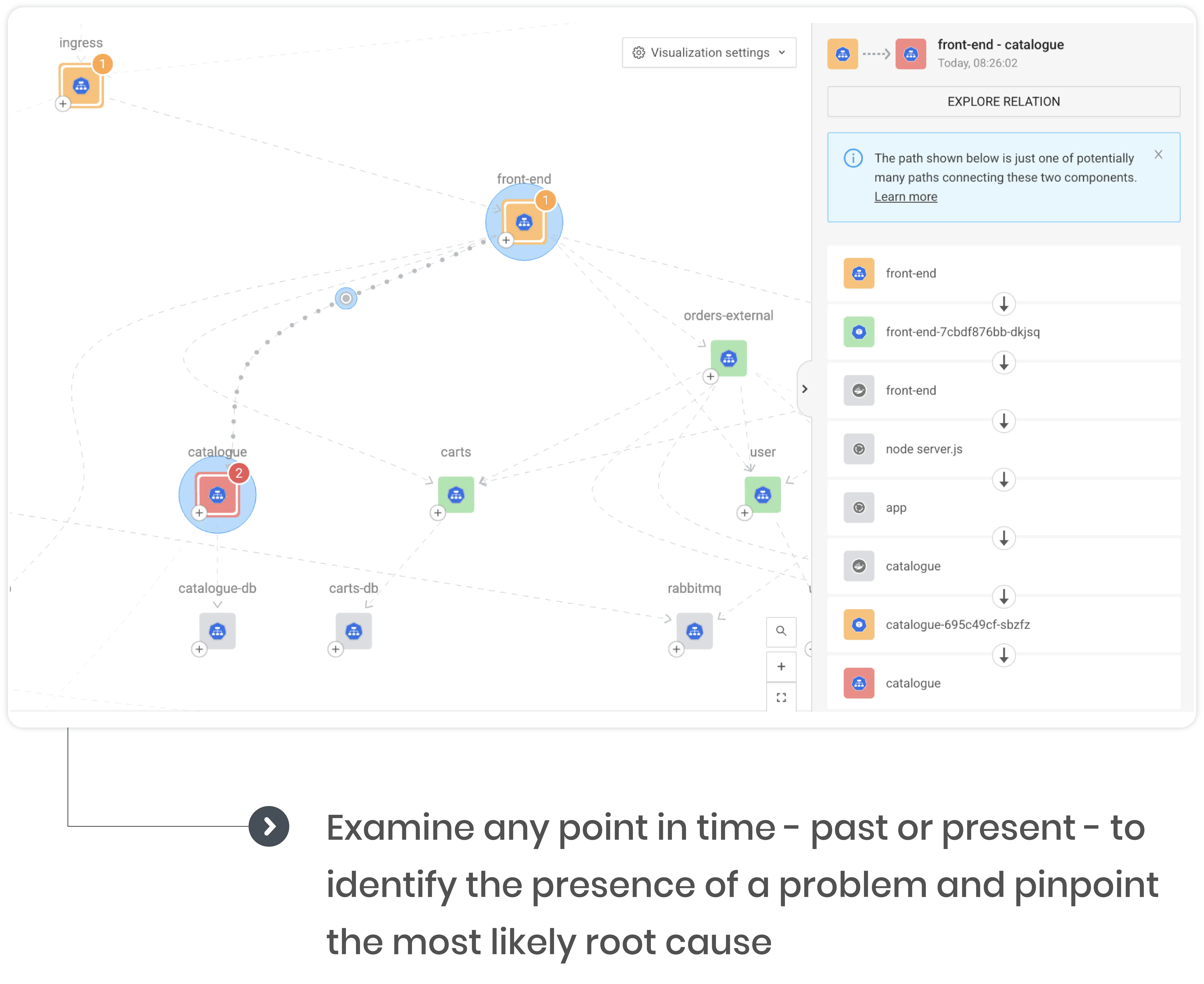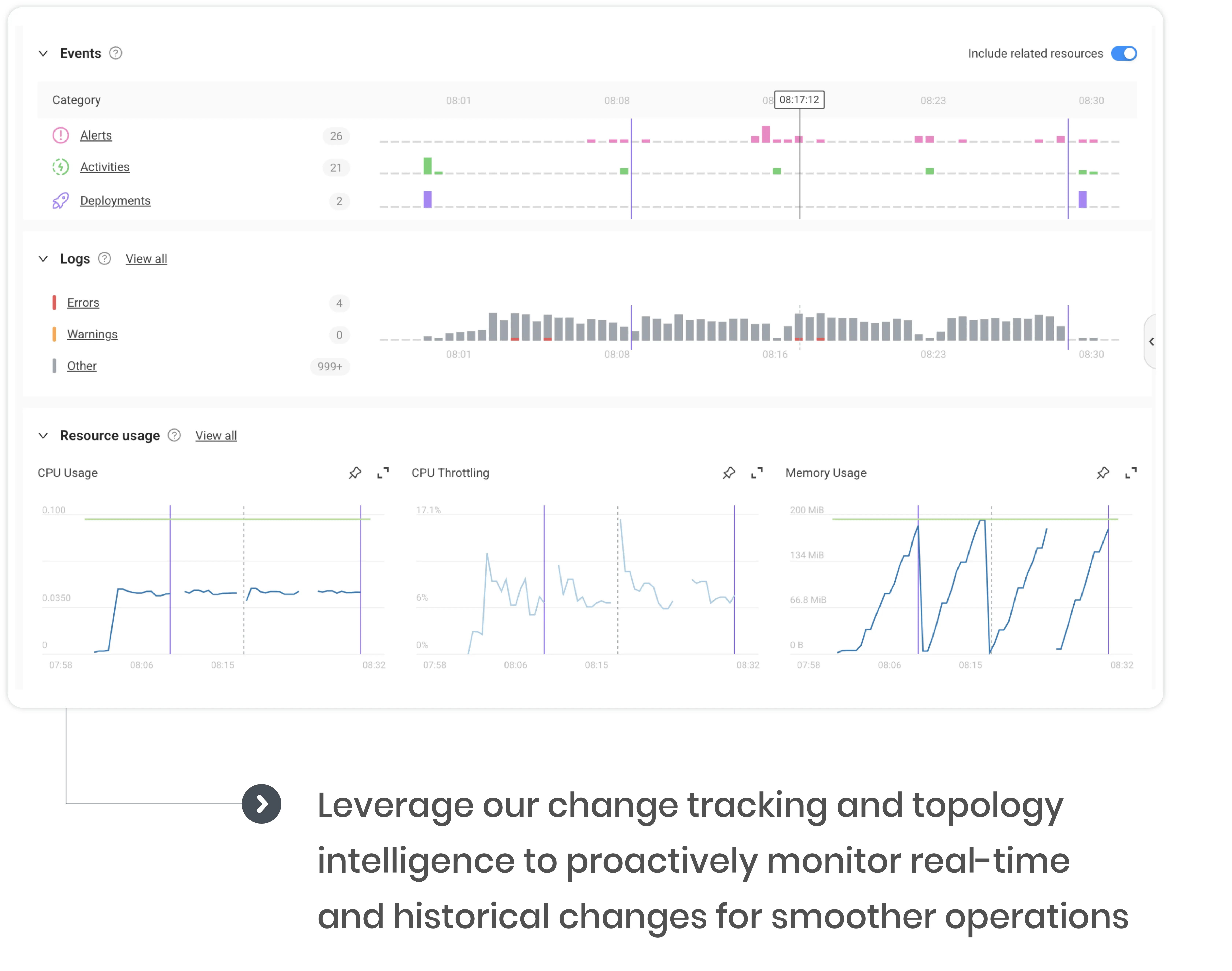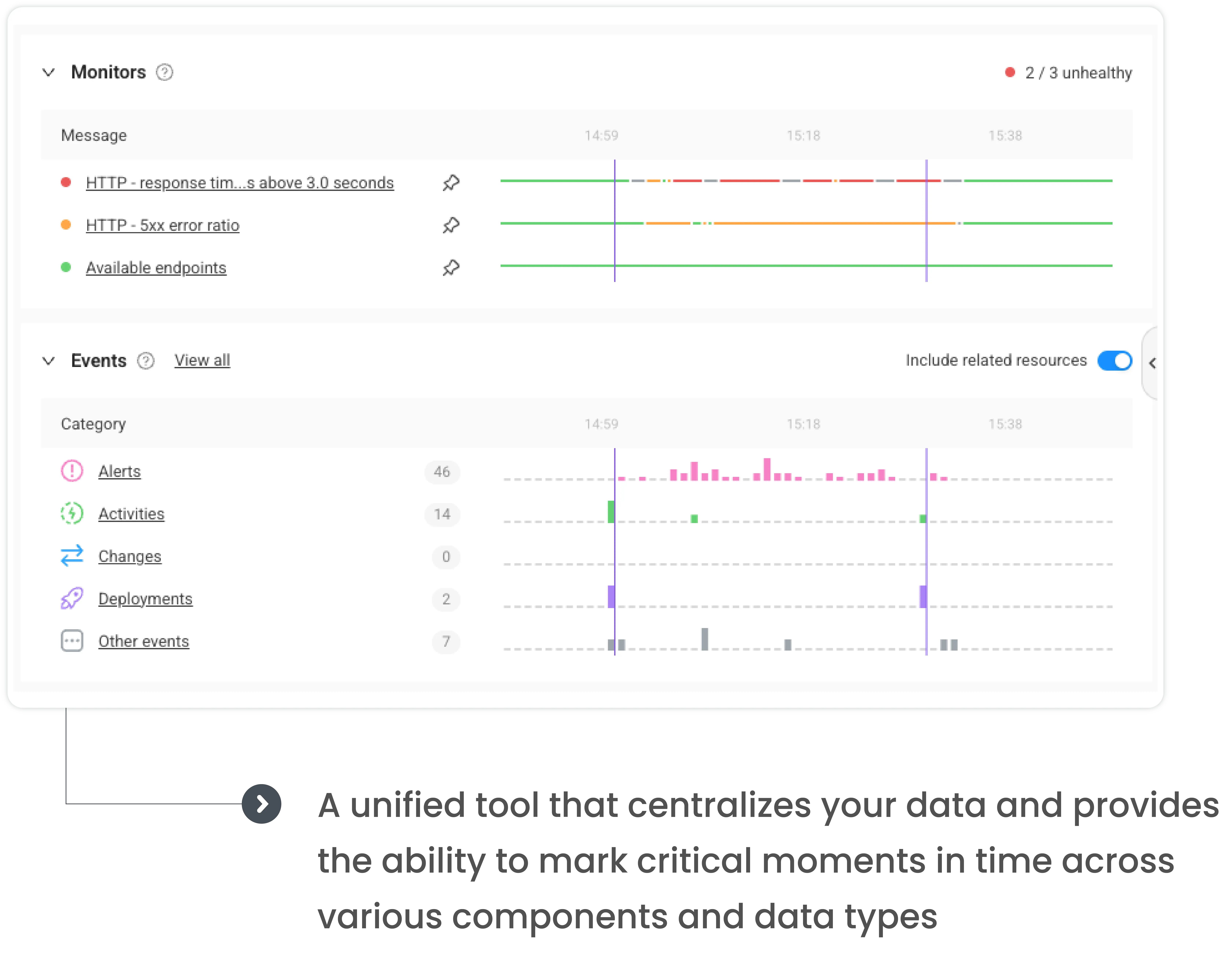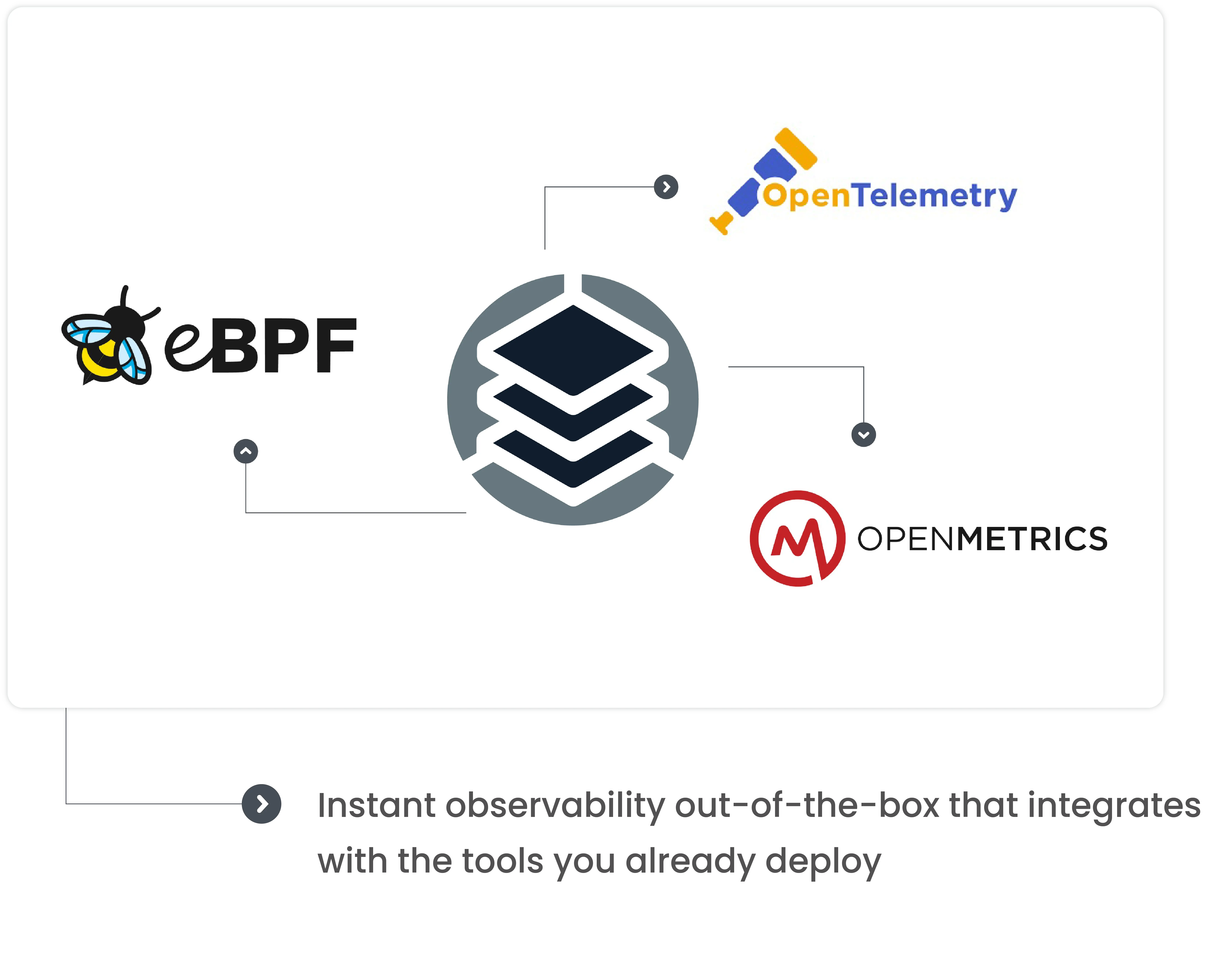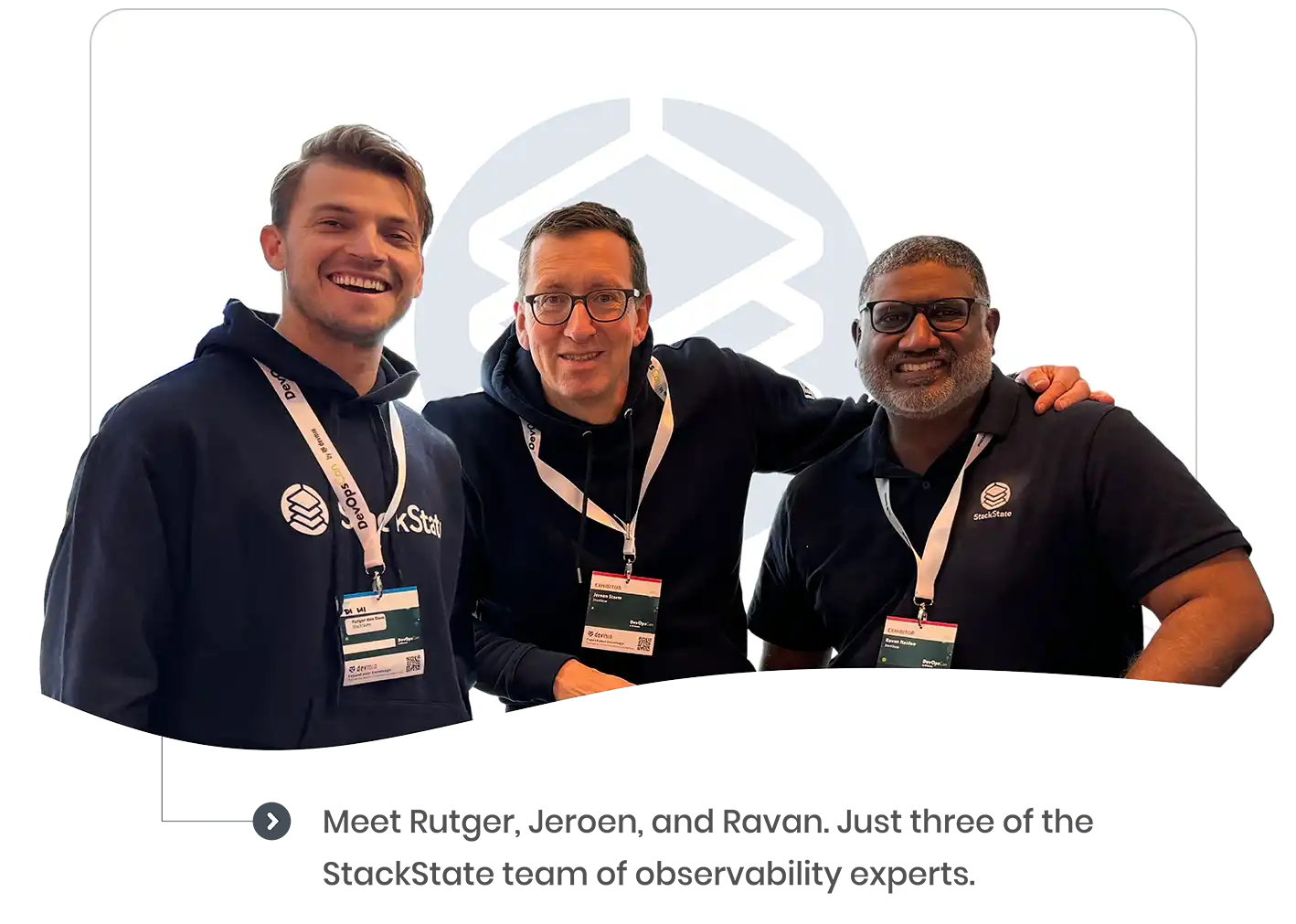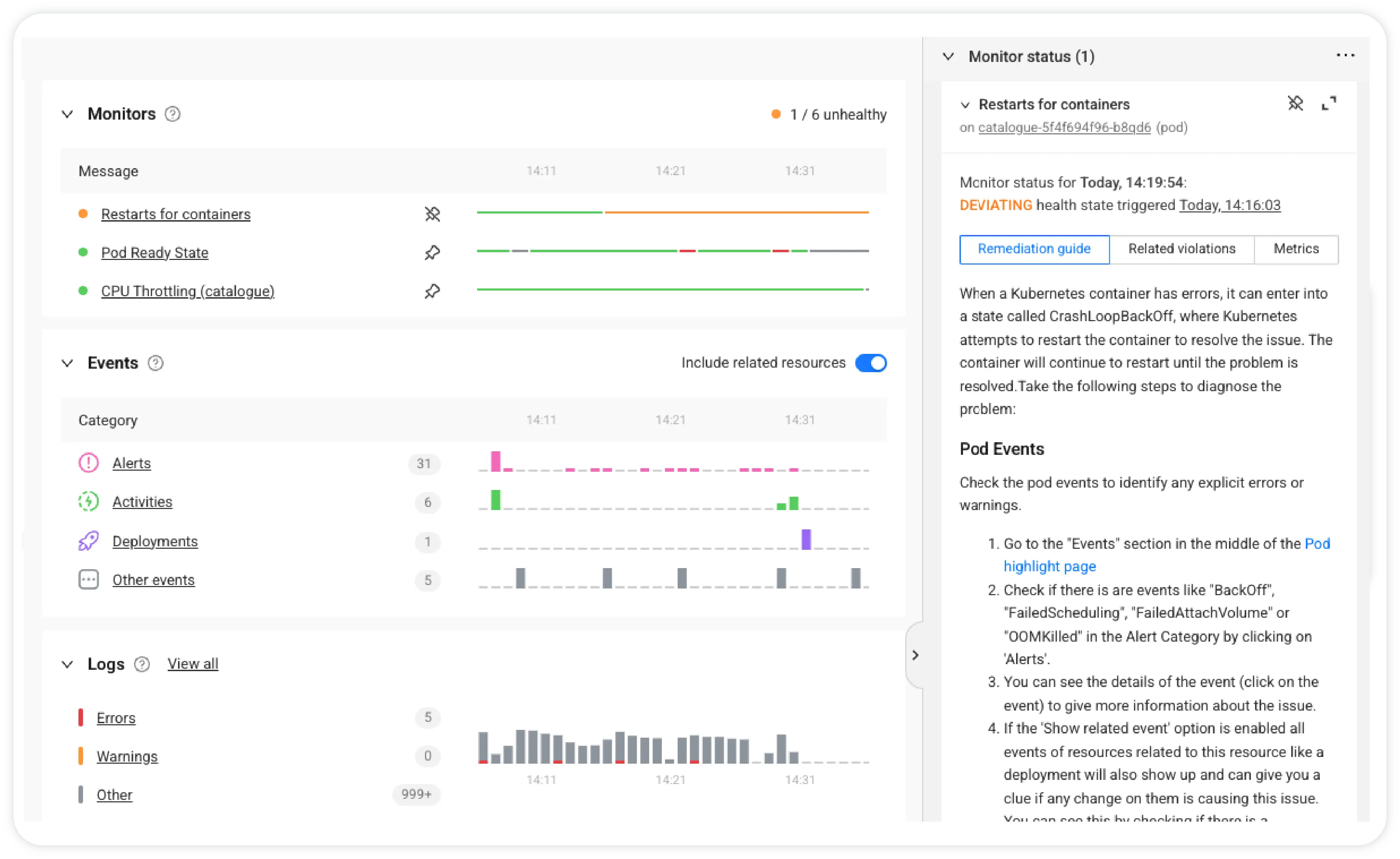

A unified, holistic view highlights complex dependencies and facilitates and promotes improved system performance
No more manual switching between multiple tools to get a comprehensive picture of your telemetry
Automatically correlate all metrics, logs, events and traces using open standards like eBPF and OpenTelemetry
Seamlessly integrate insights from deployments, changes, and alerts
Real-time topology enhances understanding of component relationships for easy issue analyses
Glean insights to spot patterns, avoid bottlenecks, identify issues, and take action to resolve and optimize services




